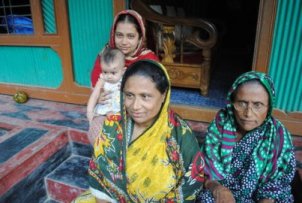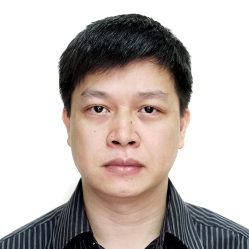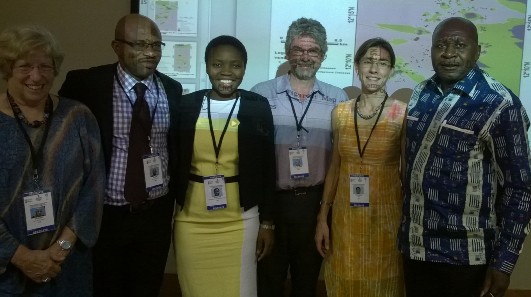| Dear Centre Leaders,
Greetings from the INDEPTH Secretariat. We hope you have had a good week.
We have the following items for your attention:
1. Matlab ‘life-saving legacy’ captured by world’s top newspaper

Sufia Khatun with members of her family in Matlab, Bangladesh.
An article about our member centre, Matlab, of the International Center for Diarrhoeal Disease Research (icddr,b) in Bangladesh, written by a journalist Amy Yee, has been published in one of the world’s top news outlets, The New York Times. The article has since been picked up by the Gates Foundation and distributed as their "One Great Read".
According to the article for five decades, icddr,b has recorded census and health data from 76 year-old Sufia, who has lived all her life in Matlab, a sub-district in central Bangladesh every two months. “As her family grew, they also collected data from her daughter Fatema, now 46; her granddaughter Salma, 26, and now Nadia, her six-month-old great-granddaughter.”
It further notes that Matlab is not just the name of a region. It is synonymous with the rural research site of the centre, whose headquarters is 34 miles away in Dhaka, Bangladesh’s capital. By coincidence, Matlab means “idea” or “plan” in Bengali.
link 1
link 2
2. African Population Conference held in Pretoria
Some of the delegates of the African Population Conference in Pretoria, South Africa (L-R) Sally Findley Columbia University), Jacques Emina (University of Kinshasa), Mamusu Kamanda (INDEPTH Secretariat), Mark Collinson (Agincourt HDSS), Natalie Mondain (Niakhar HDSS) and Martin Bangha (INDEPTH Secretariat). Prof. Jacques Emina was the chair, Mark was the discussant, Sally, Natalie, and Mamusu were presenters in the session: Health and Demographic Surveillance Systems and Policy-Making.
3. Assoc. Prof. Hoang Van Minh heads Chililab HDSS
 Assoc. Prof. Hoang Van Minh is the new head of Chililab HDSS. He takes over from Prof Tran Huu Bich. Assoc. Prof. Hoang Van Minh is the new head of Chililab HDSS. He takes over from Prof Tran Huu Bich.
Assoc. Prof Minh graduated from Hanoi Medical University in 1994. He received his Master and PhD degrees from Umeå International School of Public Health, Umeå University, Umeå, Sweden in 2001 and 2006, respectively.
He is now also associated with Umea International School of Public Health, Umea, Sweden as a guest lecturer/researcher.
Assoc. Prof. Minh is currently Deputy-Dean for research of the Hanoi School of Public Health, Viet Nam. He specialises in epidemiology, biostatistics and health economics. He has particular interest in doing research on issues of health system, especially about healthcare system capacities for the prevention and control of the rising burden of non-communicable diseases in Vietnam. He has more than 70 scientific articles published in international peer-reviewed journals.
Assoc. Prof. Minh is also a steering member of the Health Space Asia, of the Vietnam Health Economics Association. He is a member the Editorial Board of Global Health Action Journal, International Journal of Healthcare-Sciedu Press, Vietnam Journal of Public Health (English Edition) and Vietnam Journal of Communicable Diseases.
|
News from our member centres
|
1. Study to evaluate sustainability of the adoption of LPG stoves in rural Ghana
Over 3 billion people cook their food using solid fuels such as wood, coal, dung, charcoal, and crop residues. The harmful emissions released from the incomplete burning of solid fuels lead to high levels of household air pollution, which has been ranked as the third risk factor for morbidity and mortality in the 2010 Global Burden of Disease Study and the first risk factor for morbidity and mortality in Ghana. Also, the burning of solid fuels increases greenhouse gas emissions that are major drivers of global climate change.
The Kintampo Health Research Centre and her collaborators (Mailman School of Public health at Columbia University and Ghana Ministry of Petroleum) aim to better understand the barriers and motivators to sustained adoption of clean cooking technologies. The research is intended to identify key determinants influencing the sustained correct, consistent and exclusive use of clean cooking technologies in order to inform future implementation efforts.
Read more http://www.kintampo-hrc.org/projects/rlpgupdates.asp
|



 Assoc. Prof. Hoang Van Minh is the new head of Chililab HDSS. He takes over from Prof Tran Huu Bich.
Assoc. Prof. Hoang Van Minh is the new head of Chililab HDSS. He takes over from Prof Tran Huu Bich. 